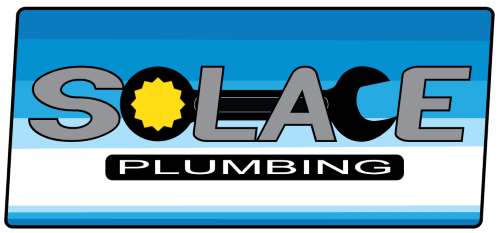What to Do When Facing a Plumbing Emergency
The first and most crucial step in an emergency is to cut off the water supply. Find
Handling a plumbing emergency is a stressful and overwhelming experience. Knowing what to do in these situations can greatly minimize the damage and maintain a level head, whether it's a burst pipe, a severe leak, or a backed-up sewer. Consider these steps to follow when facing a plumbing emergency.
Shut off the water
The first and most crucial step in an emergency is to cut off the water supply. Find the main water shut-off valve for the home and turn it clockwise until it is fully closed to stop the water flow and prevent further damage or flooding. Everyone in the household should know the location of the shut-off valve. If the emergency is localized to a specific fixture, such as a toilet or sink, the water supply using the individual shut-off valve can also be shut off.
Assess the situation
Once the water is turned off, take a moment to assess the situation. Identify the source of the problem, whether it's a burst pipe, a leaking fixture, or a sewage backup. Understanding the severity and extent of the issue can help determine the next steps and guide any necessary communication with the plumber. If there is standing water, try to determine the cause and extent of the water damage.
Contact a licensed plumber
In a plumbing emergency, it is essential to call a licensed and experienced plumber immediately. Explain the situation clearly and provide all relevant details. Many reputable plumbers offer emergency services and prioritize urgent situations. Contact a trusted plumber immediately, or ask for plumber recommendations from friends, family, or neighbors. Be prepared to provide them with any updates or changes in the situation, as they may need that information for proper evaluation.
Mitigate water damage
While waiting for the plumber, do all possible to mitigate water damage. Use mops, buckets, or towels to remove as much water as possible if there is standing water, and place buckets under any leaks to catch the water. If fans or dehumidifiers are available, set them up to help dry the affected area and prevent mold or mildew growth. Move furniture, rugs, and other belongings away from the water to prevent further damage. If necessary, temporarily relocate to a safe area in the home to avoid potential hazards.
Follow professional advice
When the plumber arrives, explain the situation and provide any additional information they may need. Follow their advice and guidance to address the emergency. They are the experts who know how to resolve the issue and prevent future problems. Be open to their suggestions and ask questions if any steps or procedures they recommend are unclear.
Document the damage
In case of significant water damage, it is important to document the affected areas with photographs or videos. This documentation could be necessary for insurance claims or any legal proceedings that may arise. For future reference, keep a record of all communications with the plumber, including receipts and invoices. This documentation helps ensure a clear record of the actions taken and the financial implications of the emergency.
Prevent future emergencies
Once the immediate emergency is resolved, take proactive measures to prevent future plumbing emergencies. Regularly inspect the plumbing system for any signs of leaks, corrosion, or wear and tear. Address any issues quickly to avoid them escalating into emergencies. Schedule regular maintenance with a licensed plumber to detect and address potential problems before they become emergencies. Homeowners should educate themselves on basic plumbing maintenance tasks, such as shutting off the water supply and checking for leaks, to take quick action in future emergencies.
Learn and be prepared
Use the experience of the plumbing emergency as an opportunity to learn and be better prepared for similar situations. Consider taking a basic plumbing course or learning about common plumbing emergency scenarios. Knowing what to do and who to call can save time, money, and stress in the future. Keep a list of emergency contacts, including plumbers and insurance providers, and keep it easily accessible.
Facing a plumbing emergency can be overwhelming, but these steps help mitigate the damage and minimize stress. Shutting off the water supply, assessing the situation, contacting a licensed plumber, mitigating water damage, following professional advice, documenting the damage, and taking preventive measures for the future are crucial actions to take. Remember, staying calm and acting swiftly makes a major difference in the outcome of a plumbing emergency.
Solace Plumbing is a licensed commercial and residential plumber with 26 years of experience in Gilbert, AZ. We provide the East Valley with a wide range of plumbing services, including 24-hour emergency service. Some of our specialties include bathtub and shower, drain installation and cleaning, faucet installation and repair, and garbage disposal installation and repair. Commercial work includes restaurants, school districts, and tenant improvements. Call us to learn more.

